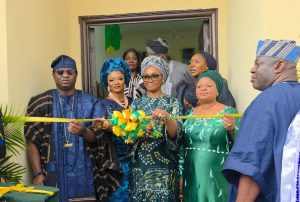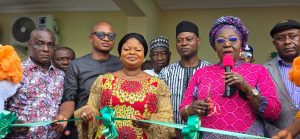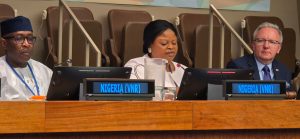I am delighted to endorse the Doing Good Work in Africa (DOWA)’s innovative In-Person Diaspora Internship Exchange Programme in Nigeria. This Initiative is designed to facilitate knowledge exchange, promote innovation, and encourage the adoption of best practices from around the world through valuable work experience, networking opportunities, and cultural exposure for students studying abroad, whilst contributing towards developing tech-enabled solutions to improve the quality of life and fostering collaboration between Nigeria and the global academic community.
DOWA is a non-profit organization dedicated to empowering African communities through sustainable development projects, and offers internships for individuals in the diaspora, which is one of the unique features of DOWA’s initiatives.
The 2030 Agenda is a call to action for the UN Member States to address critical global challenges of our present time, which borders on economic, social and environmental issues. The SDGs aim to tackle the root causes of poverty and unite us together to make a positive change for both people and the planet. Ultimately, the SDGs are Nigeria’s opportunity to provide a common plan and agenda to tackle some of the pressing challenges facing our country, such as poverty, unemployment, inequality, injustice, insecurity, climate change and conflicts.
The Young People have a critical role to play in achieving the 2030 Agenda, this demographic faces tremendous challenges of poverty, unemployment, marginalization and exclusion in the political economy. They are the torch bearers of the future and investing in them is critical to achieving inclusive, equitable and sustainable development for the present and future generations. The SDG Target 4.4 is to ‘substantially increase the number of youth and adults who have relevant skills, including technical and vocational skills for employment, decent jobs and entrepreneurship’.
This innovative internship exchange programme which aims at connecting diaspora students with Nigerian organizations would provide practical experience in diverse disciplines, including but not limited to; Science Technology, Engineering and Mathematic (STEM), Business, Arts, and Humanities. Participants will have the chance to work with leading Nigerian Companies, Non-Profit Organizations, and Government Institutions, gaining invaluable insights into the country’s economic landscape and various industries such as Healthcare, Education, Agriculture Information and Communication Technologies amongst others. This initiative not only aligns with DOWA’s mission of empowering African communities through sustainable development projects but also contributes directly to SDG 9: addresses the need for resilient infrastructure, inclusive and sustainable industrialization, and fostering innovation.
I am optimistic that this programme will not only benefit the students but also contribute to the growth and development of Nigeria and Africa, by tapping into the global talent pool, it will assist in building a network of skilled and engaged diaspora professionals, who can make positive impacts in their home countries by contributing to the development efforts in Nigeria and Africa. Similarly, this Initiative has the potential to improve life in a sustainable way by creating opportunities for our young people to move out of poverty into decent and sustainable work for inclusive growth and development in line with SDG 8.
The DOWA internship exchange programme is a testament to Nigeria’s commitment to fostering strong connections with its diaspora community. It is an essential step towards bridging the gap between academia and industry, ultimately contributing to the nation’s socio-economic development. OSSAP-SDGs in collaboration with DOWA and other key partners will provide mentorship, guidance and comprehensive support throughout the internship period.
The Internship Program spans from June to August, 2024 (8 – 10 weeks) and December to February, 2025 (4 – 6 weeks), with recruitment from various channels such as Student Organizations, Career Services Offices, African Studies Departments, Global Studies Departments, and strategic Education Partners. The overall target of the programme is to engage and train 500 number of Students by 2030.
We invite Diaspora Communities, the Development Partners, the Private Sector, the Civil Society Organisations, the Academia, the Educational Institutions and other key Partners to join us in making this programme a resounding success. Together, let’s create a world where knowledge, skills and cultural understanding are shared freely for a more prosperous and sustainable future where “no one is left behind”.




